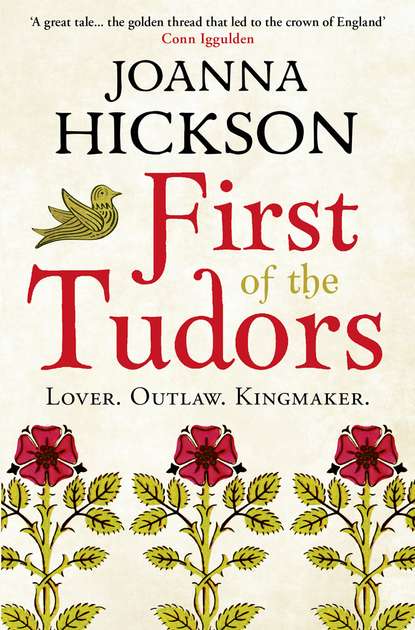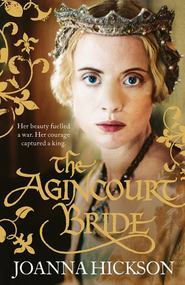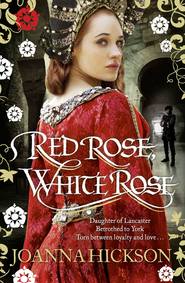По всем вопросам обращайтесь на: info@litportal.ru
(©) 2003-2024.
✖
First of the Tudors
Настройки чтения
Размер шрифта
Высота строк
Поля
By Christmas however the queen had emerged from her confinement and the king recovered his wits enough to acknowledge his son and heir and resume his rightful place on the throne. With power back in royal hands the Duke of Somerset was released from the Tower and the Duke of York relieved of his post as Protector. The Lancastrian star should have been on the rise again but sadly Henry’s malady soon returned and when Marguerite petitioned Parliament to allow her to rule as interim Regent for her infant son they rejected her outright and reappointed the Duke of York as Protector. A fresh flood of pamphlets now turned the people of London against the queen, stirring those who believed their poison to march on Westminster declaring the baby prince to be no son of the king’s but sired either by the Duke of Somerset or the Earl of Wiltshire. Marguerite took her son and fled downriver to Greenwich in fear for their safety.
Meanwhile my brother recovered again and dismissed the Duke of York, who disappeared in fury to Fotheringhay. Bravely in my opinion, Somerset returned to Henry’s side and decided that the court should move from a hostile London to the Lancastrian heartland of the Midlands. In May I brought my retinue from Pembroke to join the large escorting army deemed necessary to protect the royal family on their journey north.
Queen Marguerite rode beside the litter that carried her eighteen-month-old son, but once we had cleared London she let him sit smiling on the pommel of her saddle, waving at passers by. The Earl of Wiltshire and I were invited to ride beside her and it was during this time that I learned the details of Henry’s mysterious malady.
‘It strikes when it will, out of nowhere, Jasper,’ Marguerite explained. ‘There is no warning and apparently no remedy, and when it passes, after days or even weeks, it leaves him a little more depleted each time. My Édouard must grow quickly if there is to be a king on the throne who can hold England together, for I fear Henry will steadily become more unfit for the task. It is hard enough now to get him to concentrate on matters of state. James here knows how difficult it is to get him to understand the Treasury papers he has to sign.’
I glanced across at James Butler, Earl of Wiltshire, who rode knee-to-knee with the queen at her other side. He was close in age to Marguerite and had always been about the court in one way or another, particularly in the queen’s company, but his prominence had been but lately achieved. During York’s Protectorate Wiltshire, like Somerset, had been sent to house arrest in the Tower, ostensibly for crimes committed during disputes over his estates in the west country, but he had been swiftly released when the Protectorate was ended and promoted to the office of Treasurer of England. I realized that since then Marguerite had come to rely on his counsel a great deal and for the first time I discerned the roots of the scandal spread by the London mudslingers. Wiltshire was the kind of handsome, dashing figure that King Henry would never be and the favour Marguerite showed him was enough to set tongues wagging both in and outside the court. Remembering Marguerite’s veiled proposal to me a few years before, I even found myself looking for signs of Wiltshire’s blond good looks in the little prince but saw only his mother’s dark eyes and colouring.
‘Prince Edward seems to be doing his best to grow at a rapid rate, your grace,’ I responded. ‘He is already threatening to take the reins of your horse I see.’
Marguerite gently removed her son’s chubby fist from her mount’s reins and bestowed a kiss on the dimpled knuckles. ‘Yes, it cannot be long before he will need his own pony. I must tell you though, Jasper, that I prefer the French pronunciation of his name – Édouard.’
‘Then it shall be as you wish, my lady.’ I bowed acquiescence but could not help thinking how badly this would be received in the ranks of England’s xenophobic soldiery.
‘Prince Édouard has the makings of a true French “chevalier”, do you not agree, Jasper?’ declared Wiltshire, endowing my own name with a French polish that put me uncannily in mind of my mother. ‘It will not be long before he is riding at the head of his army.’
‘Well there is no likelihood of his father taking command,’ said the queen, her tone distinctly flat. ‘I may have to acquire a suit of armour myself.’
‘Let us hope such a thing will never be needed, your grace.’ The brilliance of the smile Wiltshire flashed at her then would have lured a cargo ship into a smuggler’s cove and I began to find his celebrated charm somewhat overwhelming.
I showed my own chipped tooth. ‘No, where we are going, my brother will have the peace and security he needs to make a full recovery.’
With her free hand Marguerite made the sign of the cross. ‘To that very end, I intend to make offerings en route, at St Alban’s shrine,’ she said. ‘Henry has much need of the martyred saint’s protection.’
However, when we arrived in St Albans we received the unwelcome news that an army led by York and Warwick was blocking our way north. Shocked, the queen hastily took Prince Édouard to the shelter of the abbey while the Duke of Buckingham, who as Constable of England was in command of the king’s escort, immediately sent heralds to negotiate with the Yorkists. Meanwhile the rest of the escorting nobility rapidly deployed their retinues in defensive positions. There were no walls around the town of St Albans, which had grown around the famous abbey shrine. Wiltshire and I took our men to the north bar, where people and goods entering and leaving the town paid their tolls. But despite it being the access to Watling Street, which was the highway on which we planned to continue our journey, we could see no sign of hostile forces.
‘They are playing hide and seek it would seem,’ Wiltshire grumbled. He had intended to wave the king’s standard, which he had the honour of carrying, boldly in the face of the opposing forces, to make them aware that they would be committing an act of treason by attacking the king’s person. King Henry himself was stationed in the town’s central Market Place with Buckingham and his bodyguard. ‘If it has no purpose here I must take the standard back to the king,’ he said, beckoning his squire to bring his horse. ‘You take over command of my men, Jasper.’
‘I will but you should know that I have no experience of battle, only the theory …’
‘There you are then.’ He cut me off, re-mounted and shouldered the standard. ‘Just apply the theory and all will be well. I doubt if there will be conflict anyway. Buckingham’s orders are to avoid civil war and so it will likely be a repeat of York’s march on London three years ago – all bluff and bluster with his heralds conveying spurious declarations of loyalty and of bringing the people’s grievances before the king. York and Warwick will be forgiven and we will all continue on our merry way.’
I very much hoped Wiltshire was right but I watched him ride away with serious misgivings. Our captains were lingering by the bar awaiting instructions and I had little notion of what to tell them but did my best to hide my inexperience by issuing orders to establish a hidden defence, using the network of lanes and alleyways off the main highway to deploy the troops where they might spring a surprise on any incursion. Soon after the men had concealed themselves, banners displaying the Duke of York’s Falcon and Fetterlock and the Earl of Salisbury’s Verteagle began to emerge from the suburban gardens of the houses lining the roadway beyond the bar. It appeared that York and Salisbury had had the same idea of concealment but their troops were now mustering to make a rush for the centre of the town.
I bid my herald give the signal to emerge and confront them and at the same time loud shouts and trumpet calls sounded behind us and I heard the unmistakable whoosh and thud of arrows finding their mark. I realized with dismay that the Yorkists had split their army and that while his allies kept us occupied, Warwick was moving in on the Market Square from the east. We were caught between the two forces. In the absence of Lord Wiltshire it would be impossible to command on both fronts and so I had no choice but to turn my back on Warwick’s attack and order the men to engage the troops approaching rapidly from the north.
The clash of forces in the town confines was bloody and confused. Having decided there was no room for cavalry in the narrow streets my troops were all on foot, while York and Salisbury’s retinues were mostly still mounted, giving them an initial advantage. Although my vanguard tried bravely to bring down the enemy’s horses we were forced off the main highway and back into the narrow lanes. Wiltshire’s soldiers, without their commander, soon melted away into the shadows but I called together my own men and led them through backstreets and alleyways in order to bring support to Buckingham and the king in the Market Square, which seemed the only thing I could do. Although I knew there had been several casualties I prayed we were not leaving any dead behind us, only to find when we got there we were too late. Buckingham had been felled and was lying wounded on the cobbles with blood seeping from under his helmet and King Henry and his bodyguard were surrounded. Both the Earl of Warwick and the Duke of York were there already in force. Clearly we had no option but to lay down our arms. There was no sign of Wiltshire or the royal standard.
The battle, if it could be called that, was over. While York and Salisbury had barged their way through my unsuccessful defence of the north bar, Warwick’s attack from the east side of the town had taken the king and the royal guard by surprise and I was to learn that during the brief hostilities key Lancastrian leaders had been singled out and killed by Warwick’s men, including the Duke of Somerset, the Earl of Northumberland and Lord Clifford. But to my immediate consternation I noticed that the king himself had been wounded by a Yorkist arrow, the shaft of which was still protruding from the back of his neck.
I stepped forward and offered my sword to York, and then my support to my brother. As soon as he saw me the look of fear and bewilderment left Henry’s eyes and he leaned heavily on my shoulder. ‘Ah, Jasper, it is you. I think I need the services of a surgeon.’
The duke nodded agreement. ‘Yes, Pembroke, take his grace for treatment. The monks will know where to go but my men will escort you.’ He signalled to a sturdy knight who was hovering nearby and gave him whispered instructions. Monks were already beginning to emerge nervously from the abbey with offers to assist the wounded and it was one of them who led us, unarmed and surrounded by a considerable Yorkist escort, to a tanner’s workshop, assuring us that it would have the tools necessary to remove the arrowhead without causing more damage. And God be praised, the monk was right; King Henry’s injury proved to be only a flesh wound, which was successfully treated and bandaged. The arrow had missed any vital blood vessels but I was greatly impressed by the courage and stoicism Henry displayed as the brawny tanner wielded his hefty pincers so close to a vulnerable area.
Meanwhile the Duke of York had been making hasty arrangements for dealing with the other casualties. By the time we returned to the Market Square Buckingham had been taken away for treatment and my men had been relieved of their arms and corralled together in a dejected group in one corner. York bowed punctiliously to King Henry and informed him that he and Warwick would escort him back to London. No mention was made at that time of the death of Somerset.
‘But I wish to go to Kenilworth with the queen,’ Henry protested, gripping my arm tightly as if fearful he might be wrenched away from me. ‘Tell him, Jasper – we are going to the Midlands. I do not like residing at Westminster or the Tower.’
‘The queen and the prince may go north if they wish,’ said the duke firmly, ‘but the people expect their king to be in London. We will make sure that you are comfortably accommodated, sire, have no fear.’
Henry turned beseeching eyes on me but I shook my head. There was no future in arguing at the point of a sword. And so the royal family was separated, apparently with the worthiest of motives. The king rode into London beside York, while Warwick led the procession, bearing aloft the Sword of State in hands which only hours before had sent the Duke of Somerset into the hereafter. The people who cheered them through the streets were in no doubt as to who was now in control of the kingdom.
When Henry was finally told of Somerset’s death the shock sent him into such a state of grief that he would not have been capable of ruling anyway. I wondered how Marguerite had taken the news when she heard it, far away in the Lancastrian castle-in-the-lake that was Kenilworth. She must have been distraught that she had lost both her favourite counsellors; Somerset to Warwick’s sword and Wiltshire to self-inflicted exile in Flanders, where he had chosen to take refuge rather than face York’s vengeance. The royal standard had been found propped up against a hovel in a dark alley and most of Wiltshire’s armour was dragged out of the River Ver, which ran through the town. Some monk claimed that the fleeing earl had given him a mark for his habit to use as a disguise.
As for me, the duke chose not to take offence that I had fought against him at St Albans. ‘You are the king’s brother,’ he said. ‘I hold family loyalty in high esteem.’ He went so far as to call me back to the Royal Council, even though I warned him that my prolonged absence from Pembroke would leave crown property in West Wales vulnerable to Gruffydd and his sons. This was where York’s ulterior motive showed, for his response was to favour my brother Edmund, who had not been at St Albans, and appoint him as the king’s Lieutenant in South Wales, with orders to bring Gruffydd to heel. Shuddering at the prospect of Edmund destroying all the diplomatic advances I had made with the ‘old rascal’ and his sons, I went to Henry to protest but it was immediately clear to me that my royal brother was still reeling from Somerset’s death.
With his household scattered he had been accommodated at the Bishop of London’s palace and I found him pale and timid, barely clinging to sanity. ‘Edmund’s appointment was the Duke of York’s idea, Jasper,’ he whispered. There was still a fresh scar on his neck where the arrow had so nearly severed a vital blood vessel. ‘He is very angry about our royal dignity being disparaged in Wales. I thought it best not to argue with him.’
In making my response I swapped my usual cheerful tone for what I hoped was a gently persuasive one. ‘I understand completely, my liege, but on this occasion I believe second thoughts are needed. Highly as I know you regard Edmund, I submit that he is not the man for this task. He makes no secret of the fact that he does not like the Welsh, which must seriously affect the chances of successful negotiations with the local chieftains.’
Henry frowned. ‘But he is Welsh himself and the appointment has been made public. It cannot be changed.’
I tried not to sound exasperated. ‘You are the king, Henry. If you believe an error has been made then you can cancel the appointment.’
He shook his head vehemently, as if trying to eject a buzzing insect from his ear. ‘No. No, I will not do that, Jasper. I cannot.’
Reluctantly I let the matter drop. A time was to come when I would wish that I had not.
9 (#ulink_7f2b9cc4-77cf-5f92-8a22-544801a6036b)
Jasper (#ulink_7f2b9cc4-77cf-5f92-8a22-544801a6036b)
Bletsoe Castle, Bedfordshire
FIVE MONTHS AFTER THE regrettable clash of arms at St Albans, Edmund and Margaret stood before the altar in the chapel at her mother’s castle of Bletsoe in Bedfordshire. It was a cold day and the bride’s blue and silver mantle embroidered with the Beaufort portcullis swamped her small frame; a jewelled circlet secured her long dark hair. She was twelve and a half years old and dwarfed by Edmund who stood tall and magnificent and twice her age, at his physical and fashionable fittest. During our two-day ride from Westminster to Bletsoe, I had asked him why Lady Welles had agreed to the wedding while her daughter was still so young but he informed me gleefully that Margaret had more or less demanded to be married.
‘She says her prayers have been answered. I think she is somewhat in love with me.’
The look of smug satisfaction on his face stung me to anger and my right fist developed a sudden desire to make contact with his chiselled chin, which I resisted only with difficulty. ‘But you must not bed her until she is older, Edmund.’
Edmund gave a noncommittal shrug, avoiding my gaze. ‘That rather depends on Margaret. Lady Welles confides that her daughter has flowered – a rather coy euphemism I think – but it does imply that both nature and the law deem her ready for deflowering.’ He turned to face me then, delighted with his own coarse wit.
I swallowed an explosion of wrath and fought to keep my voice steady. ‘She is not though, Edmund, is she? And you know it. You only have to look at her. She is still a child. Where are the breasts? Where are the womanly curves? And apart from anything else, whatever the Church’s rule on canonical age, conception would endanger Margaret’s life and that of the child.’
Вы ознакомились с фрагментом книги.
Приобретайте полный текст книги у нашего партнера:
Приобретайте полный текст книги у нашего партнера:









